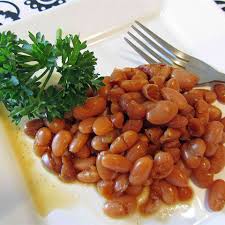Savor the Flavor: Exploring the Versatility of Beans in Global Cuisine

The Versatile Bean: A Nutritious and Delicious Ingredient
Beans are a staple ingredient in cuisines around the world, valued for their versatility, nutritional benefits, and delicious taste. From black beans in Latin American dishes to chickpeas in Middle Eastern cuisine, beans come in a variety of shapes, sizes, and colors, making them a versatile ingredient for a wide range of recipes.
One of the key reasons why beans are so popular is their nutritional value. Beans are an excellent source of plant-based protein, fiber, vitamins, and minerals. They are low in fat and cholesterol-free, making them a healthy choice for those looking to maintain a balanced diet.
Beans are also known for their ability to support digestive health due to their high fiber content. Fiber helps promote regular bowel movements and can aid in reducing the risk of certain chronic diseases such as heart disease and diabetes.
Furthermore, beans are an environmentally friendly food choice. They require less water and land compared to animal-based protein sources, making them a sustainable option for those looking to reduce their environmental impact.
Whether you enjoy them in soups, salads, stews, or dips, beans add texture, flavor, and nutrition to any dish. So next time you’re planning a meal, consider incorporating beans into your recipe for a healthy and delicious touch!
8 Compelling Benefits of Beans: Nutrient Powerhouse and Culinary Staple
- Rich source of plant-based protein
- High in fiber, promoting digestive health
- Low in fat and cholesterol-free
- Packed with vitamins and minerals
- Versatile ingredient for a variety of recipes
- Environmentally sustainable food choice
- May help reduce the risk of chronic diseases like heart disease and diabetes
- Adds texture, flavor, and nutrition to dishes
Seven Downsides of Eating Beans: From Allergies to Digestive Concerns
- May cause digestive discomfort such as gas and bloating in some individuals
- Some people may be allergic to certain types of beans
- Beans can be high in carbohydrates, which may not be suitable for individuals on low-carb diets
- Certain beans require soaking and lengthy cooking times, which can be time-consuming
- Beans contain antinutrients such as phytates and lectins, which may interfere with nutrient absorption
- Overconsumption of beans may lead to excessive flatulence and gastrointestinal issues
- Some canned beans can contain added sodium and preservatives
Rich source of plant-based protein
Beans are a rich source of plant-based protein, making them an excellent choice for individuals looking to increase their protein intake without relying on animal products. Whether added to salads, soups, or stir-fries, beans provide a substantial amount of protein that is essential for muscle repair and growth. Incorporating beans into your diet can help you meet your daily protein needs while also benefiting from the various vitamins, minerals, and fiber that beans offer.
High in fiber, promoting digestive health
Beans are a fantastic source of fiber, which plays a crucial role in promoting digestive health. The high fiber content in beans helps to support regular bowel movements, prevent constipation, and maintain a healthy gut microbiome. By including beans in your diet, you can improve digestion, support overall gut health, and reduce the risk of digestive disorders. So, next time you’re looking to boost your fiber intake and promote digestive wellness, consider incorporating more beans into your meals for a happy and healthy gut.
Low in fat and cholesterol-free
Beans are a nutritious choice for those looking to maintain a healthy diet due to their low fat content and cholesterol-free nature. By incorporating beans into meals, individuals can enjoy a satisfying and flavorful dish without the worry of consuming excessive fats or cholesterol. This makes beans an excellent option for promoting heart health and overall well-being, providing a delicious way to support a balanced and wholesome diet.
Packed with vitamins and minerals
Beans are a nutritional powerhouse, packed with vitamins and minerals that are essential for overall health and well-being. From iron and magnesium to folate and potassium, beans provide a wide array of nutrients that support various bodily functions. Incorporating beans into your diet can help boost your immune system, improve energy levels, and promote healthy digestion. With their rich nutrient profile, beans are a delicious and convenient way to ensure you’re getting the vitamins and minerals your body needs to thrive.
Versatile ingredient for a variety of recipes
Beans are celebrated for being a versatile ingredient that can be used in a wide range of recipes. From hearty soups and stews to flavorful salads and dips, beans add texture, protein, and depth of flavor to dishes from various cuisines around the world. Their adaptability allows them to be incorporated into both traditional and modern recipes, making them a go-to ingredient for home cooks and professional chefs alike. Whether mashed into burgers, blended into creamy hummus, or simmered in a spicy chili, beans shine as a versatile culinary staple that elevates the taste and nutritional value of any dish they are added to.
Environmentally sustainable food choice
Beans are praised for being an environmentally sustainable food choice due to their low environmental impact. Compared to animal-based protein sources, beans require significantly less water and land to cultivate, making them a more eco-friendly option. By choosing beans as a staple in our diets, we can contribute to reducing the strain on natural resources and help promote sustainability in our food system.
May help reduce the risk of chronic diseases like heart disease and diabetes
Beans are a valuable addition to a healthy diet as they may help reduce the risk of chronic diseases such as heart disease and diabetes. Thanks to their high fiber content, beans can aid in regulating blood sugar levels and cholesterol, both of which are key factors in preventing these conditions. By incorporating beans into your meals on a regular basis, you can take proactive steps towards improving your overall health and well-being.
Adds texture, flavor, and nutrition to dishes
Beans are a versatile ingredient that adds texture, flavor, and nutrition to dishes. Whether used in soups, salads, stews, or dips, beans bring a satisfying chewiness and depth of flavor to recipes. Their rich nutritional profile, including plant-based protein, fiber, vitamins, and minerals, enhances the overall health benefits of any dish they are incorporated into. By incorporating beans into your meals, you not only elevate the taste and texture but also boost the nutritional value of your culinary creations.
May cause digestive discomfort such as gas and bloating in some individuals
Beans, while nutritious and versatile, may pose a challenge for some individuals due to their potential to cause digestive discomfort. Some people may experience gas and bloating after consuming beans, which can be attributed to their high fiber content and certain sugars that are not easily digested by the body. To minimize these effects, soaking beans before cooking, increasing water intake, and gradually introducing beans into the diet can help reduce digestive issues for those sensitive to them.
Some people may be allergic to certain types of beans
Some individuals may experience allergies to certain types of beans, which can lead to adverse reactions when consumed. Common symptoms of bean allergies include digestive issues, skin rashes, and respiratory problems. It is important for those with known bean allergies to carefully read food labels and avoid dishes containing beans that trigger their allergic reactions. Consulting with a healthcare professional for proper diagnosis and management of bean allergies is essential to ensure one’s health and well-being.
Beans can be high in carbohydrates, which may not be suitable for individuals on low-carb diets
Beans can be high in carbohydrates, which may not be suitable for individuals on low-carb diets. While beans are a nutritious source of plant-based protein and fiber, their carbohydrate content can be a concern for those following a low-carb eating plan. For individuals looking to limit their carb intake for various health reasons, such as managing blood sugar levels or promoting weight loss, it is important to be mindful of the amount of beans consumed to stay within their dietary goals. Consulting with a healthcare provider or nutritionist can help individuals determine the best approach to incorporating beans into a low-carb diet while still reaping their nutritional benefits.
Certain beans require soaking and lengthy cooking times, which can be time-consuming
One drawback of using certain types of beans in cooking is the need for soaking and lengthy cooking times, which can be quite time-consuming. Beans like kidney beans, chickpeas, and black beans often require soaking overnight to reduce cooking time and improve digestibility. Additionally, these beans can take hours to cook properly, which may not be convenient for those looking to prepare a quick meal. Despite their nutritional benefits and delicious flavor, the time and effort required to prepare these beans can be a deterrent for some home cooks seeking convenience in their meal preparation.
Beans contain antinutrients such as phytates and lectins, which may interfere with nutrient absorption
Beans contain antinutrients such as phytates and lectins, which can pose a challenge to nutrient absorption. Phytates can bind to minerals like iron, zinc, and calcium, reducing their bioavailability in the body. Similarly, lectins may interfere with the absorption of nutrients by binding to the cells lining the intestines. While cooking beans can help reduce the levels of antinutrients, their presence highlights the importance of proper preparation methods to maximize nutrient absorption from this otherwise nutritious food source.
Overconsumption of beans may lead to excessive flatulence and gastrointestinal issues
Overconsumption of beans can sometimes lead to excessive flatulence and gastrointestinal issues for some individuals. Beans contain complex carbohydrates that are not fully digested in the small intestine, leading to fermentation by gut bacteria in the large intestine. This fermentation process can produce gas, causing bloating, discomfort, and increased flatulence. To mitigate these effects, it is recommended to gradually increase bean consumption in your diet to allow your digestive system to adjust and consider cooking methods like soaking or sprouting beans to help reduce their gas-producing properties.
Some canned beans can contain added sodium and preservatives
One downside of beans is that some canned varieties can contain added sodium and preservatives. While canned beans are convenient and easy to use, the high levels of sodium and artificial additives in some products may not align with a healthy diet. Consuming excessive sodium can contribute to high blood pressure and other health issues, so it’s important to be mindful of the ingredients in canned beans when incorporating them into your meals. Opting for low-sodium or no-salt-added canned beans, or choosing dried beans that can be cooked from scratch, are alternatives to consider for a healthier bean option.
